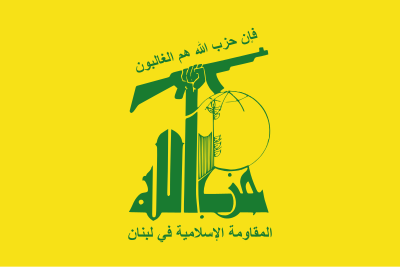
IDF Strikes Senior Hezbollah Operative in Beirut Amid Heightened Regional Tensions
Early Monday morning, the Israeli Defense Forces (IDF) targeted and eliminated a senior Hezbollah figure in the southern suburbs of Beirut, an area long considered a Hezbollah stronghold. The strike, which Israeli officials described as a direct response to an imminent threat, is being closely watched as tensions between Israel and the Iranian-backed terror group continue to rise along the northern border.
The target of the strike was Hassan Bdair, a senior operative affiliated with both Hezbollah’s Unit 3900 and Iran’s Quds Force. According to the IDF, Bdair played a critical role in coordinating terrorist activities between Hezbollah and Hamas, and was actively involved in planning a major attack on Israeli civilians. Security officials stated that the strike was carried out based on precise intelligence indicating that Bdair’s actions posed an immediate danger to Israeli lives.
Unit 3900, the Hezbollah division to which Bdair belonged, is primarily responsible for orchestrating terrorist operations in Yehudah and Shomron by cultivating contacts and coordinating logistics with operatives in those areas. The IDF and Israel’s intelligence services—Shin Bet and Mossad—released a joint statement following the strike, emphasizing that the operation was essential to thwart an attack that could have had devastating consequences.
The airstrike took place in Dahiyeh, a densely populated southern suburb of Beirut that has historically served as Hezbollah’s central hub. The IDF confirmed that it had taken measures to minimize harm to civilians; nevertheless, the Lebanese Health Ministry reported four deaths and several injuries, though details regarding the identities of the other casualties remain unclear.
This marks the second Israeli airstrike in the Beirut area since the end of the November 2024 ceasefire agreement between Israel and Hezbollah, which had temporarily paused over a year of cross-border skirmishes and rocket fire. The previous strike occurred just days earlier, after rockets were launched from southern Lebanon into northern Israel. While Hezbollah denied responsibility for that rocket fire, Israel held the group accountable, citing its control over the area from which the rockets originated.
Lebanese officials responded to the strike with sharp condemnation. President Joseph Aoun denounced the attack as a violation of Lebanese sovereignty and called on the international community to pressure Israel to refrain from further aggression. Hezbollah also issued a statement mourning the death of Bdair and promising a response “at the appropriate time and place.”
For Israel, the strike reflects a broader strategic effort to prevent Iranian entrenchment and proxy coordination near its borders. Hezbollah, which receives funding, training, and weaponry from Iran, has increasingly worked in tandem with Hamas and other Iranian-backed groups to destabilize the region and open multiple fronts against Israel. In particular, recent months have seen efforts to establish operational cells in Yehudah and Shomron, coordinated from abroad, as part of a broader campaign to incite violence and undermine security.
Senior Israeli officials have reiterated that the country will not allow a situation in which Hezbollah or other Iranian proxies can operate freely in neighboring states. Defense Minister Yoav Gallant stated, “We are committed to protecting the citizens of Israel. Wherever terror is being planned against us—whether in Gaza, in Lebanon, or beyond—we will act with determination and precision.”
The international response to the airstrike has been mixed. While several Western nations recognized Israel’s right to self-defense, others urged restraint, fearing a wider regional escalation. United Nations representatives called for all parties to adhere to diplomatic channels and avoid actions that could further destabilize Lebanon, a country already grappling with a severe political and economic crisis.